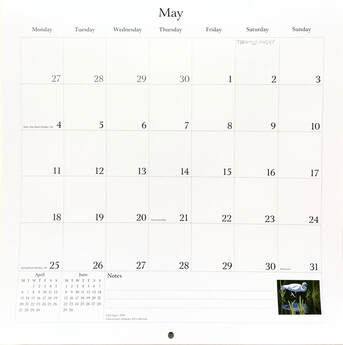|
Reflections from a home front: 13 These Strange Times produce a strange experience of time. Certainly, it appears warped. For many, pre-lockdown life seems like a lifetime ago – yet lockdown weeks seem to be flying by. At one level, this is accounted for by what we know about the ways the brain registers time. It’s complex but, essentially, the more we are absorbed in what we are doing, the more new information we are processing, the more quickly time seems to pass – at the time. Paradoxically, when we look back on a busy period, especially if we have been deeply engaged intellectually or emotionally, and especially if there have been several distinct events of changes of activity, then it occupies more space in our memory – and the brain perceives it as having taken more time. Hence a short holiday with lots of new, stimulating activity flies by but stretches forever in recollection. And the converse is true. Clearly everyone’s experience of These Strange Times varies, but there are common themes. There are also some conflicting conditions in relation to time perception, which perhaps increases the perception of strangeness. So a lockdown sabbatical in which one day is indistinguishable from another can feel like a long time when we’re in it, yet will collapse in retrospect. Equally, the fact it’s a series of novel experiences and requires a lot of emotional processing means that time doesn’t drag, yet early March will seem like another country. That’s the nub of it, you can read more here. For some of us, I think, the experience may be further complicated by a different relationship with measured time. I, for instance, have never got on well with watches and now my wrist ticks only to the pulse of my vein. Our calendar, meanwhile, languishes on the kitchen wall, displaying the month that never was with events we cannot bear to cross off – even as the increasingly blank rows seem to gesture to a life of possibility. At the same time, a widespread reconnection with the natural world may be drawing us into a wholly different kind of time, attuning us to not only to the turn of the earth but also what has been ticking away underneath all along. As Alan Burdick observes in Why Time Flies: “What science has begun to reveal is how time manifests itself in living biology, how it is interpreted … by cells and subcellular machinery … it seeps upward into the neurobiology, psychology and consciousness of our species.” Ancient cultures understood time not as a measured commodity, but as a function of nature. It was not so much linear as cyclical, elastic, and with no sense of an ultimate ending. These ideas are obliquely reflected in the Greek distinction between chronos and kairos, both of which we casually translate as time. Perhaps the closest we can get to remembrance of ‘mythic’, pre-chronologically literate time is the kind of time we experience as young children. Or, as Winnie the Pooh begins: “Once upon a time, a very long time ago, about last Friday.” Of course, things are different now. We understand how time really works. Except we don’t. “If scientists agree on anything” says Burdick, “it’s that nobody knows enough about time, and this lack of knowledge is surprising, given how pervasive time is in our lives.” What does the word ‘time’ conjure for you? Perhaps an image of a clock or watch. Of course, we need clocks. We are social creatures and if we are to live and work together, we need some agreement on matters of when and how long. So we live by our chronometers, constantly, consistently checking our lives. But time is also in us. And it is us – “seeping up” from every living cell where the inbuilt clock ticks to both its own internal rhythms and the cycles of night and light. Here is my attempt to capture some of this in a poem. “Will everyone know about Plato and Paley?” asked the Wandering Albatross. “P’raps not,” I said, “but hopefully that won’t matter.” To hear the poem, click the play button. Telling time
The calendar on the kitchen wall. Like a flickering shadow in the cave, Spellbinds these perfect squares, pale days – Now May’s only a notion In some other dimension. Beached, the bedside watch With blanket of dust, ticks off Each second – each minute Just one more circuit. Scratching the surface. Out of the race, we fall Into step with trees. We feel The grain and ringing cells And find time isn’t told But grows and folds.
0 Comments
Your comment will be posted after it is approved.
Leave a Reply. |
AuthorStill me … Archives
September 2020
Categories
All
|


